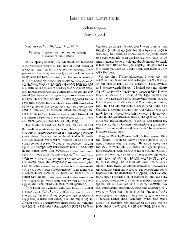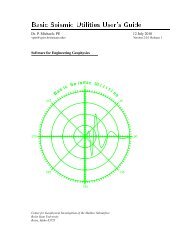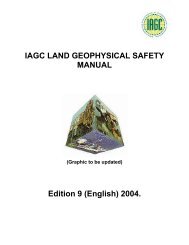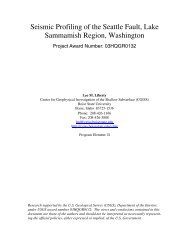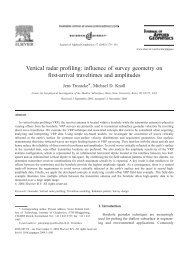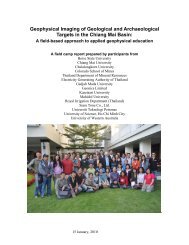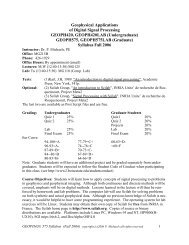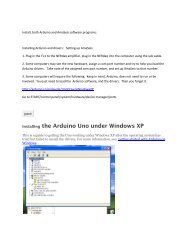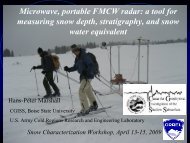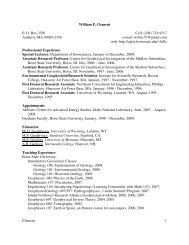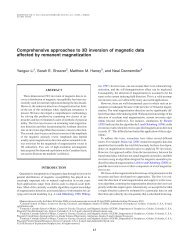Chapter 9 - Instructional Media: Chalkboards to Video - CGISS
Chapter 9 - Instructional Media: Chalkboards to Video - CGISS
Chapter 9 - Instructional Media: Chalkboards to Video - CGISS
Create successful ePaper yourself
Turn your PDF publications into a flip-book with our unique Google optimized e-Paper software.
• Cambridge, B. L. (1996). The paradigm shifts: Examining quality of<br />
teaching through assessment of student learning. Innovative Higher<br />
Education, 20 (4), 287-297.<br />
• Duch, B. (1998). PBL: Preparing students <strong>to</strong> succeed in the 21st<br />
century. PBL Insight, 1 (2), 3.<br />
• Duch, B. J., Groh, S. E., & Allen, D. E. (eds.). (2001). The power of<br />
problem-based learning: a practical “how <strong>to</strong>” for teaching<br />
undergraduate courses in any discipline. Sterling, VA: Stylus<br />
Publishing.<br />
• Hamil<strong>to</strong>n, N. (1997). Peer review: The linchpin of academic freedom<br />
and tenure. Academe, 83 (3), 15-19.<br />
• Melville, D. (1997). Management of a PBL program: The value of<br />
sound evaluative mechanisms. In G. Ryan (Ed.), Learning<br />
assessment and program evaluation in problem based learning: A<br />
monograph. (p.67). Sydney, Australia: Australian Problem Based<br />
Network.<br />
• Torp, L. & Sage, S. (2002). Problems as possibilities: Problembased<br />
learning for K-16 education. (2 nd ed.). Alexandria, VA:<br />
Association for Supervision and Curriculum Development.<br />
Using Projects<br />
• Gulbahar, Y., & Tinmaz, H. (2006). Implementing project-based<br />
learning and E-portfolio assessment in an undergraduate course.<br />
Journal of Research on Technology in Education, 38(3), 309-327.<br />
Retrieved June 27, 2006, from ERIC database.<br />
• Williams, D. L., Beard, J. D., & Rymer, J. (1991, Summer). Team<br />
projects: Achieving their full potential. Journal of Marketing<br />
Education, 12, 45-53.<br />
Using Role-Play<br />
• Cote, V. (1987). Teaching oral communication in computer science.<br />
SIGCSE Bulletin, 19 (2), 58-60.<br />
• Duncombe, S., & Heikkinen, M. H. (1988). Role-playing for different<br />
viewpoints. College Teaching, 36 (1), 3-5.<br />
• Harwood, W. S., MaKinster, J. G., Cruz, L., & Gabel, D. (2002).<br />
Acting out science: Using senate hearing <strong>to</strong> debate global climate<br />
change. Journal of College Science Teaching, 31 (7), 442-447.<br />
• Herring, D. M. (1985, Summer). Role-playing shows pitfalls of quick<br />
decisions. Journalism Educa<strong>to</strong>r, 40 (2), 27-30.<br />
• Johnson, E. C. (1985). Role-playing in business communications.<br />
Journal of Education for Business, 61 (2), 60-63.<br />
• Lebaron, J., & Miller, D. (2005). The potential of jigsaw role-playing<br />
<strong>to</strong> promote the social construction of knowledge in an online<br />
graduate education course. Teachers College Record, 107 (8),<br />
1652-1674.<br />
Section: Lesson Delivery 102 <strong>Chapter</strong> 8: Using Active Learning



